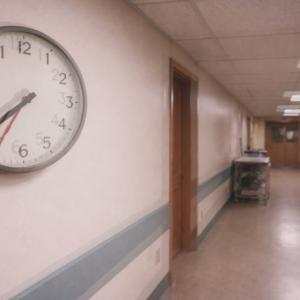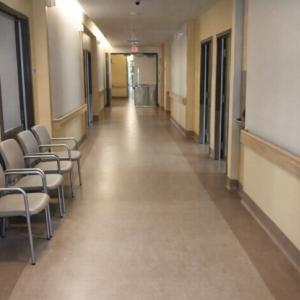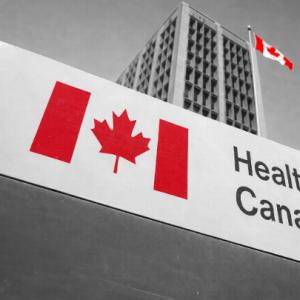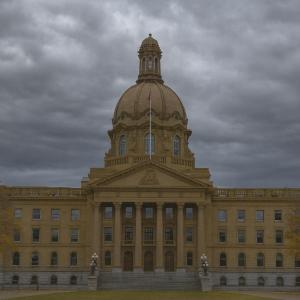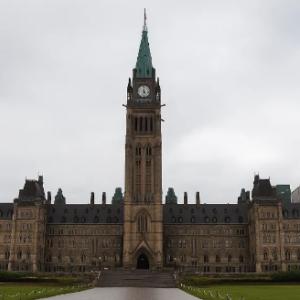The physicians are coming. Is Canada ready?
U.S. physicians are lining up to serve, but Canada’s licensing logjam is holding them back.
In February, I was among the first to alert Canadians that a historic wave of physician migration was coming.
I had recently moved to Canada due to the rapid decline of medical ethics in America which, alarmingly, has gone largely unopposed by American medical professional societies and state medical boards. I also invited my fellow U.S. physicians to join me, and practice medicine in a country that still believes in science.
Today, the wave is cresting.
Thanks to an authoritarian, anti-science takeover in the U.S., Canadian provinces — especially British Columbia — are now seeing unprecedented interest from highly trained, board-certified U.S. doctors. This includes emergency physicians, internists, pediatricians, and intensivists. Many of them trained in academic centres. Many in their prime.
And yet, despite all of the momentum, we (Canada) are failing to meet the moment.
Promise made, promise deferred
In March, B.C. Health Minister, Josie Osborne, announced the province would fast-track licensure for American-trained physicians certified by the American Board of Medical Specialties (ABMS).
The goal was clear: Osborne said it should take about six weeks for a doctor to be able to practice in B.C.
This promise was accompanied by a $5 million recruitment campaign targeting Washington, Oregon, and California. And it worked, at least initially.
According to various reports, the Medical Council of Canada saw a 750 per cent increase in U.S. physician applications compared to the same period last year. HealthMatch BC reported 573 American physicians expressing interest within the campaign’s first weeks. Recruitment efforts had their desired effect.
But Osborne’s six-week timeline hasn’t materialized.
In the past month, I’ve spoken with two U.S.-trained physicians, one who already accepted a job offer in B.C. They were told licensing would take four months. The other was told the six-week pathway wasn’t expected to launch until summer — it is now June.
They aren’t outliers. These are the very doctors the policy was designed to attract. They’ve jumped through multitudes of administrative hoops, connected with HealthMatch BC, and secured B.C. employers. They are ready. But the system is not.
Bureaucracy is the bottleneck
Here’s what one of them told me recently:
“It’s been a process. I was hoping to come this summer, but HealthMatch thought that was too ambitious.”
The central failure here is fragmentation.
Each prospective recruit has to navigate HealthMatch BC, the College of Physicians and Surgeons of B.C., MCC verifications, immigration, job contracts, background checks, and sometimes credentialing from multiple facilities. There is no unified intake process. No one-stop shop. There is no “single door” through which these ready-and-willing doctors can walk.
Frankly, it should be a one-call thing. Everyone working in one office together, getting it done. It can be done. Canada needs doctors, badly.
This isn’t a normal migration. It’s an exodus.
The United States is no longer a safe place to practice science-based medicine.
The Department of Health and Human Services is now led by Robert F. Kennedy Jr., a long-time vaccine conspiracist who falsely claimed COVID vaccines cause infertility, autism, and mass deaths. He is not alone.
The National Institutes of Health has been taken over by Dr. Jay Bhattacharya, co-author of the Great Barrington Declaration, who spent the early-pandemic undermining evidence-based public health measures. He now oversees the dismantling of federally funded research. One of Bhattacharya’s first actions was to cancel grants tied to pandemic preparedness, HIV, and infectious disease surveillance — programs that save lives.
The FDA is now run by Dr. Marty Makary, who rose to prominence on cable news by questioning vaccine boosters and downplaying the severity of COVID. His inner circle includes Dr. Tracy Beth Høeg, who pushed bunk vaccine-risk exaggeration studies, and Dr. Vinay Prasad, who made his career out of comparing pandemic measures to authoritarianism.
They’re not fringe actors anymore. They hold all of the levers.
Doctors who speak out are now targeted. Scientists are fleeing. Medical boards are captured 1, 2, 3, 4. Reproductive rights, gender-affirming care, and basic public health infrastructure are all in the crosshairs.
Physicians like me didn’t leave the U.S. for higher pay. We left because we saw what was coming and refused to comply. We moved to Canada because we still believe in evidence-based care. We want to be clinicians, not the regime’s pawns. And by this point, we’re not coming. We are here.
The missed opportunity
Many U.S. doctors have already arrived. Many more want to come. They’re ready to work.
They’re just stuck in bureaucratic hell.
Canada’s health systems don’t have the luxury of leaving skilled emergency physicians in limbo. Wait times are growing. ER closures continue. Rural communities are desperate.
You don’t need American doctors six months from now. You need them next month. You need them last year. You need them today.
Here’s the fix:
- Create a centralized licensing hub — One team, one office, one physical space where CPSBC, HealthMatch, and MCC representatives work side-by-side. No more siloed communications.
- Honor the six-week timeline — If the system can fast-track nurses in days (and it does), it can process certified U.S. physicians in weeks.
- Expand provisional licenses — While paperwork finalizes, allow physicians to begin supervised practice in non-high-risk roles.
Increasingly, Canada has the talent, the need, and it has the ethical high ground. But none of that matters if the system won’t deliver.
The physicians are coming. Canada, are you ready for them?
---
Code Black is a pseudonymous physician and health policy expert who now practices in Canada. Their previous Canada Healthwatch articles include Paging Canada, I traded my U.S. medical career for life in Canada, and Save public healthcare before it’s too late.
